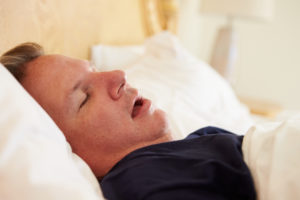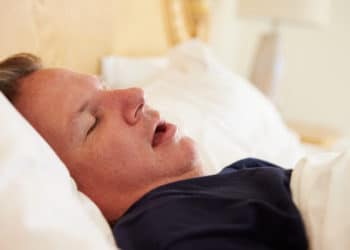
Sleep apnea is a common and potentially dangerous disorder in which breathing repeatedly stops and starts during sleep. This may happen more than 50 times an hour, and you may not be aware that it’s occurring since you probably aren’t fully waking up as this happens.
Untreated sleep apnea can be dangerous to your overall health. It can cause excessive daytime drowsiness, which can lead to workplace or driving accidents. Sleep apnea has also been linked to an increased likelihood of having high blood pressure and heart problems.
In this blog, Dr. Marc Bowen of MXBowen, Physician P.C., Health & Breathing Center will explain the top symptoms of sleep apnea.
What is sleep apnea?
Sleep apnea is a disorder that disrupts your breathing when you’re asleep. It causes breathing to be briefly interrupted or to become very shallow during sleep. These pauses can occur hundreds of times a night, jolting you out of your natural sleep rhythm. Each time your breathing stops, you move from deep sleep into a lighter stage of sleep. As a result, you won’t get the deep sleep you need to be well rested and mentally sharp the next day.
You may also develop serious ongoing health issues as a result of your sleep apnea. It can increase your risk of developing high blood pressure, heart issues, and type 2 diabetes.
What are the symptoms of sleep apnea?
It can be difficult to determine on your own if you might have sleep apnea, since most of its symptoms occur when you’re asleep. It can also be difficult to diagnose at a routine doctor’s visit.
The most common symptoms of sleep apnea are the following:
- Loud and chronic snoring every night that disturbs your sleep or the sleep of others
- Choking, snorting, or gasping for air during sleep
- Waking up at night feeling short of breath
- Daytime sleepiness and fatigue, even if you’re spending enough time in bed
Other warning signs and symptoms of sleep apnea include:
- Having a dry mouth or sore throat when you wake up
- Insomnia or awakening at night
- Restless or fitful sleep
- Going to the bathroom frequently during the night
- Forgetfulness and difficulty concentrating
- Uncharacteristic moodiness, irritability, or depression
- Morning headaches
- Impotence
Where can I get treated for my symptoms of sleep apnea in NYC?
If you’re exhibiting symptoms of sleep apnea, it’s important to receive an accurate diagnosis to determine if you have this condition. Dr. Bowen may recommend that you undergo a home sleep study to accurately diagnose your condition.
You’ll be provided with a small device and simple instructions. You’ll wear a compact device around your head as you sleep comfortably in your own home and bed. As you sleep, it will collect important data about your vital signs – such as pulse, blood oxygen levels, and breathing patterns.
After your test, you’ll return the device to Dr. Bowen so he can analyze and interpret your results in order to make an accurate diagnosis.
If the results indicate the presence of sleep apnea, Dr. Bowen will explain your treatment options as well as the next steps to follow in order to achieve the restful and restorative sleep that you deserve.
If you have some of the symptoms of sleep apnea and think you may suffer from this disorder, or if you’re interested in learning more about a home sleep study, please contact our office for an evaluation.

